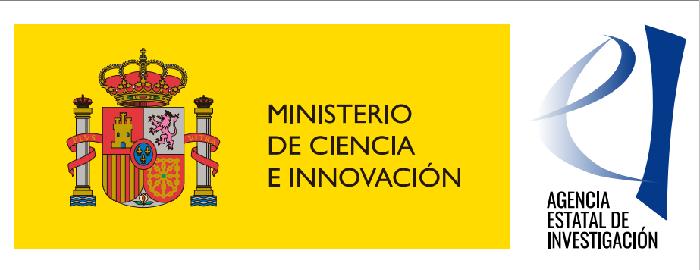Damage in the digital environment: new challenges for compensation
- Inicio
- Investigación
- Damage in the digital environment: new challenges for compensation
Presentation
Project: Damage in the digital environment: new challenges for compensation.
PID2020-115352GB-I00
Proyectos I+D Generación de conocimiento
TIPO B
Principal research felow 1 : María José Santos Morón
Principal research felow 2: Sara Martín Salamanca
Departamento de Derecho Privado. Universidad Carlos III de Madrid
Duration: 3 years (2021-2023)
The increasing digitalization of society and the development of digital technologies have broadened and blurred the possibilities of producing damages to people as well as to goods. The interaction of platforms, the unstoppable interconnection of data flow and information demanded by users and the irruption of the digital collaborative era compromise the traditional rules on liability. Users publish personal information about themselves and about others in the networks, and they express opinions and views about third parties that may damage their reputation. Voluntary or involuntary dissemination of personal information frequently leads to frictions with the regulation on personal data protection. In all these cases several rules converge; rules that may be applicable but offer solutions which are not homogeneous and in some cases, even contradictory (GDPR and Data Protection Law; Information Society Services Law: Organic Law 1/82; Press and Printing Law …).
We have to add, to what has been said, that the use of products and devices that employ digital technology can provoke personal and patrimonial damages to the users of such goods or services that lack an adequate solution. On the one hand, because the multiplication of individuals (producer of the good, producer of the software, programmer, owner, etc.) involved in their creation and use makes it difficult to identify the agent responsible for the damage. On the other hand, because the general rules on liability or defective products are not always suited to solve the problems arising thereof. A revision of the system is necessary. A revision that has to evaluate critical elements such as the notion of “product”, “defect” or “damage” (including data or pure economic damage) as well as the burden of proof or the role of the insurance system.
Moreover, the development of the offer of services of digital content has caused a continuous impact in the ecosystem of the Single Market. First by directly affecting the typology of uses of such contents and, currently, the design of adequate systems of liability. On the one hand, there is a lack of criteria to accumulate the pre-existing rules about e-commerce agents (Dir. 2000/31), the existence of new agents and the recent regulatory interventions (Dir. 2019/790). On the other hand, the European strategy on intellectual property is relegating the accuracy of regulation in favour of case-law. This has led, up to now, to a compendium of tailor made decisions. All the above has caused a considerable stress in the European systems, in which there is an inconsistency in the actions to be exercised, in particular due to the conceptual difficulty of conceiving the intermediary as an offender.
The purpose of this Project is to give answers to the challenges raised by Tort Law in the digital field, looking for an equilibrium between the necessary confidence for users of goods and services and a sustainable promotion of the digital environment. In particular, we aim to identify the individuals liable for the damage, the applicable liability regime and the most adequate measures to obtain compensation for the damages caused. All this in order to stimulate theoretical and practical progress and to obtain a greater degree of legal certainty.
Principal Researchers
- María José Santos Morón
- Sara Martín Salamanca
Research team
- Yolanda Bergel
- Celia Caamiña
- Fernando Bondía
- Maite Alonso
- Natalia Mato
- Carmen Crespo
- Andrea Macía
- Patricia Llopis
Work team
- Patricia Vives
- Irene Calboli
- Erika Isler
- Koen Swinen
- Nathalie Martial-Braz
Results of Research
- Congress; “The impact of new technologies in intellectual property”. UC3M-Trasatlantic Intellectual Property Summer Academy. Puerta de Toledo, June 12 to 14, 2023.
- Conference: Claudia Carolina Mejías Alonzo. Cuestiones en torno a la responsabilidad postcontratual. Algunos aspectos de su configuración y contenido. June 22, 2022.
- Conference: Martín Salamanca, S., "Los estatutos jurídicos aplicables a las plataformas digitales", Ciclo de Derecho y Nuevas Tecnologías, UC3M-Universidad Autónoma de Chile, 7 de junio de 2022.
- Conference: Santos Morón, M.J., "Derecho de daños e inteligencia artificial", Ciclo de Derecho y Nuevas Tecnologías, UC3M-Universidad Autónoma de Chile, 6 de junio de 2022.
- Conference: Bergel Sainz de Baranda, Y., "Derecho de consumo y nuevas tecnologías", Ciclo de Derecho y Nuevas Tecnologías, UC3M-Universidad Autónoma de Chile, 16 de mayo de 2022.
- Conference: Bergel Sainz de Baranda, Y., "La réforme de la responsabilité civile extracontractuelle, perspectives futures", University of Montpellier. January 21, 2022.
- Webminar: Erika Isler: "Responsabilidad civil y agentes artificiales: una mirada a la experiencia chilena", Thursday 28 October 2021.
- Conference: Santos Morón, M.J, "La responsabilidad civil en el entorno digital", V Jornadas hispano-alemanas de Derecho Privado, UC3M, 20 - 21 October 2021.

Project PID2020-115352GB-I00 funded by MCIN/AEI/10.13039/501100011033

